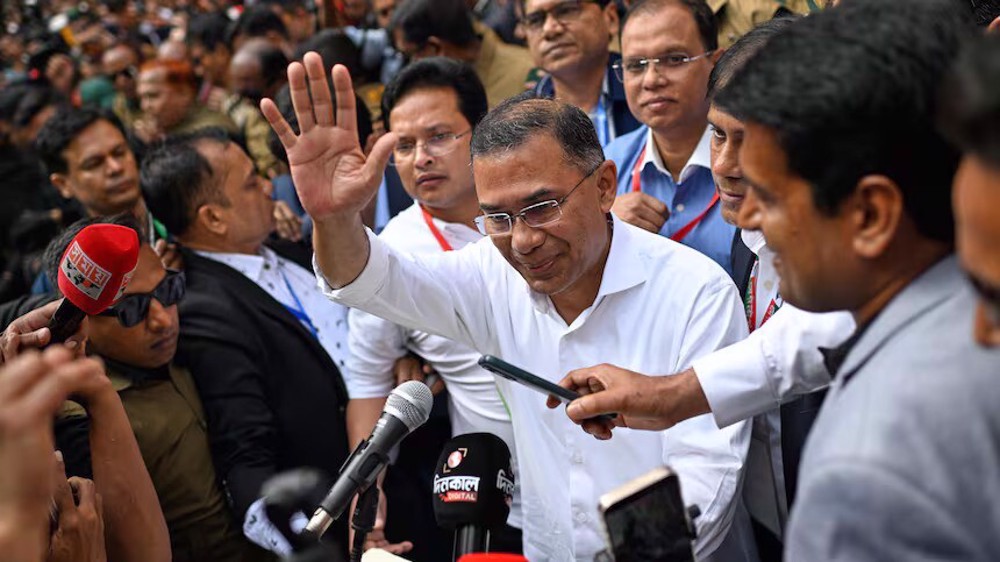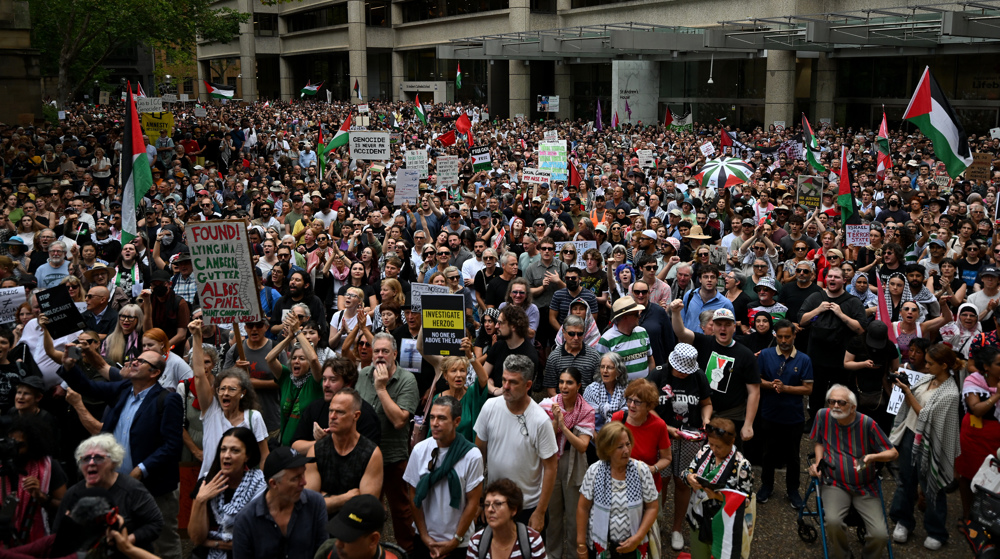UN: Myanmar's 'systematic' crackdown on Rohingya aimed at permanent expulsion
The United Nations says Myanmar's "systematic" crackdown on the persecuted Rohingya Muslim community is aimed at permanently expelling them from their home in Rakhine state.
A report published by the UN on Wednesday detailed a campaign by Myanmar's military to terrorize the Rohingya through atrocities that range from indiscriminate killings to rape.
"Brutal attacks against Rohingya in northern Rakhine State have been well-organized, coordinated and systematic, with the intent of not only driving the population out of Myanmar but preventing them from returning to their homes," the UN report said.
Myanmar's troops often operate "in concert with armed Rakhine Buddhist individuals," the report added.
"In some cases, before and during the attacks, megaphones were used to announce: 'You do not belong here, go to Bangladesh. If you do not leave, we will torch your houses and kill you'," it said.
The investigative report also contradicts claims by Myanmar's government that the crackdown was a response to militant attacks on security posts on August 25. The probe found that the latest wave of military "clearance operations" in Rakhine actually began before that date, possibly in early August.
The investigation outlines an army-led campaign to erase the Rohingya connection to their homeland in the majority Buddhist country.
Teachers, as well as cultural, religious and community leaders have also been targeted in the latest crackdown "in an effort to diminish Rohingya history, culture and knowledge," the report said.
"Efforts were taken to effectively erase signs of memorable landmarks in the geography of the Rohingya landscape and memory in such a way that a return to their lands would yield nothing but a desolate and unrecognizable terrain."
The latest UN report is based on interviews with refugees who have fled to Bangladesh's Cox's Bazar area since August 25. The UN team spoke to hundreds of people in a series of 65 interviews, some with individuals and some with groups of up to 40 people.
UN figures show more than half a million people have fled the ongoing violence.
The researchers also found evidence of abuses designed to "instill deep and widespread fear" among the Rohingya. This included accounts of soldiers surrounding homes and firing indiscriminately as residents ran for their lives as well as uniformed men gang-raping women and girls, some as young as five. One statement, "received by an extremely credible source, referred to a (pregnant) woman whose stomach was slit open after she was raped."
Speaking to reporters in the Swiss city of Geneva, researcher Thomas Hunecke said the UN had "very credible information" that Myanmar's military had planted landmines along the Bangladesh border. "It is highly likely that these mines have been planted in order to prevent the Rohingya population from returning."
The United Nations believes the government of Myanmar might have committed ethnic cleansing and crimes against humanity in its crackdown. The Rohingya are considered by the UN the “most persecuted minority group in the world.”

EU to cut ties with Myanmar military chiefs
The European Union is to cut ties with senior Myanmar military chiefs to protest the "disproportionate use of force" against the Rohingya, according to an agreement approved by EU ambassadors and set to be signed off at a meeting of foreign ministers on Monday.
The agreement said the rapid flight of so many people from Rakhine "strongly indicates a deliberate action to expel a minority."
"In the light of the disproportionate use of force carried out by the security forces, the EU and its member states will suspend invitations to the commander-in-chief of the Myanmar/Burma armed forces and senior military officers and review all practical defense cooperation," the agreement says.
According to the agreement, the EU "may consider additional measures" if the crisis does not improve. The bloc currently bans the export of arms and equipment that can be used for "internal repression."
President underlines Leader’s oversight of nuclear negotiations; rules out ‘talks for talks’ sake’
VIDEO | Iran, Pakistan target $10 billion in bilateral trade by 2028
Tehran summons German envoy over Berlin’s anti-Iranian stances, measures
Iran warns about consequences of normalizing violations of intl. rules
VIDEO | Gaza’s Ramadan: 1.7mn displaced struggle between hope and pain of war
Israel’s West Bank land seizures signal 'alternative homeland' threat: Ex Jordanian official
Tarique Rahman sworn in as Bangladesh’s new prime minister
UAE removes online references to Hind al-Owais after Epstein email revelations










 This makes it easy to access the Press TV website
This makes it easy to access the Press TV website